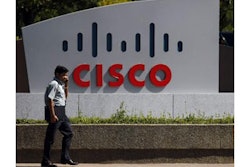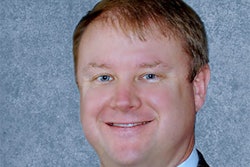BATON ROUGE, La. (AP) — It was just over a year ago that David Belanger took over as president and CEO of Community Coffee, one of Louisiana's best known and most popular brands.
He has made some changes, such as spinning off CC's Coffee House into a separate business and introducing new cups for single-serve coffeemakers, but Community has basically stayed the same.
That's just the way Belanger wanted it.
"There was no need to overhaul or make some radical change with the company," said Belanger, sitting back in a conference room in Community's south Baton Rouge headquarters. "The intent was to keep the continuity of what we had in place and continue to grow."
Belanger, 50, has been with Community for 15 years. He took over as president and CEO in June 2012, replacing Matthew Saurage, the great-grandson of the company's founder Henry Norman "Cap" Saurage. After seven years as president and CEO, Matthew Saurage is now the company's board chairman.
Before taking over as president and CEO, Belanger spent three years as Community's chief operating officer and had assembled the company's senior management team.
"I give the Saurage family a great deal of credit," he said. "We had been working on a succession plan for three years prior to me becoming president and CEO. A lot of companies don't do a great job with that."
One of Belanger's first moves was to reaffirm Community's culture, heritage and values with its employees, working to reinforce Community's commitment to its employees, customers and consumers. This also tied in with the company's efforts to keep the brand relevant.
"The types of products, packaging, messaging — it's all important," Belanger said.
This year is the 25th anniversary of Community's popular Cash for Schools program, in which its product UPC codes can be redeemed to provide money to participating schools. Through the years, Community has given more than $4 million to more than 900 schools in nine states. Schools have used the money for computers, playgrounds, teaching resources and other improvements.
Currently, Community can be found on grocery store shelves in an 18-state region stretching from New Mexico to Florida. When Belanger started with the company 15 years ago, Community was sold in four states.
The company has a national presence in its coffee service division, which provides java to offices, restaurants and convenience stores.
"Our national account team is out hunting," he said.
South Louisiana remains its biggest market. Despite competition from a range of well-known national brands and exotic coffees, Community has a 65 percent share of the local coffee market. That dominance is one of Community's selling points to shoppers and restaurants outside the state, Belanger said.
"When you think about south Louisiana, you think about great cuisine," he said. Community can rightfully claim that it is the coffee of choice for the finest restaurants in New Orleans, which are among the finest restaurants in the country and the world.
"We somewhat get the halo effect from this," Belanger said. "But if we don't invest in the brand and move a certain amount of units per week, we won't last long."
Because Community is privately held, Belanger would not reveal revenue figures. But he said about 45 percent of the company's sales come from grocery stores, big-box retailers and shopping clubs, such as Sam's Club, and 45 percent comes from the coffee service division. The remaining 10 percent of sales come from Community's website.
The company has more than 700 employees and posted revenue growth of more than 10 percent from 2011 to 2012, Belanger said.
"Outside of the recession, it has not been uncommon for us to experience double-digit, top-line growth," he said.
To help continue that growth, Community has continued to introduce new products. The latest was single servings of coffee for shoppers with single-cup brewers. When the new products were introduced in April, they came with Community's three most popular brands: dark roast, café special and breakfast blend. But sales have been so brisk, Belanger said, that seven more varieties are being added.
"Single-serve represents 27 percent of the U.S. coffee market, so we intend to expand," he said.
Community spun off its coffee house business in February, but the business is still owned by the Saurage family.
"We got into the coffee house business in the mid-1990s to connect to different consumer groups," Belanger said.
The problem is that coffee houses aren't like retail or restaurant sales — the keys are quick service and hospitality.
Celton Hayden Jr., who has been with Community for more than 12 years, is president of CC's Coffee House. The company has launched a national licensing program; Hayden said hundreds of people have applied.
Hayden said licensing works better than franchising because it's more flexible.
"Franchising puts the company into touching every single aspect of a business," he said. "Licensing offers some latitude, and still there are controls."
At the start, Community owned every CC's, but licensing arrangements were reached for the four CC's on the LSU campus.
"We enjoyed supporting them," Hayden said.
The 20 CC's locations in Texas and Alabama were all shut down by 2003 and there was a focus on the Louisiana coffee houses. Hayden said the company will once again look at opening coffee shops in neighboring states.
"We want to grow our brand concentrically out from where we are the strongest," he said.
But Hayden said Louisiana should have the first licensed CC's.
"For several years, we haven't been in a position to open up corporately owned stores," he said. "There's a high demand."
For now, CC's is concentrating on finding good licensees who plan on prime locations.
Hayden said he would rather have one good coffee house than three average ones. "We're taking the longest-term view possible," he said.
___
Information from: The Advocate, https://www.theadvocate.com/






















